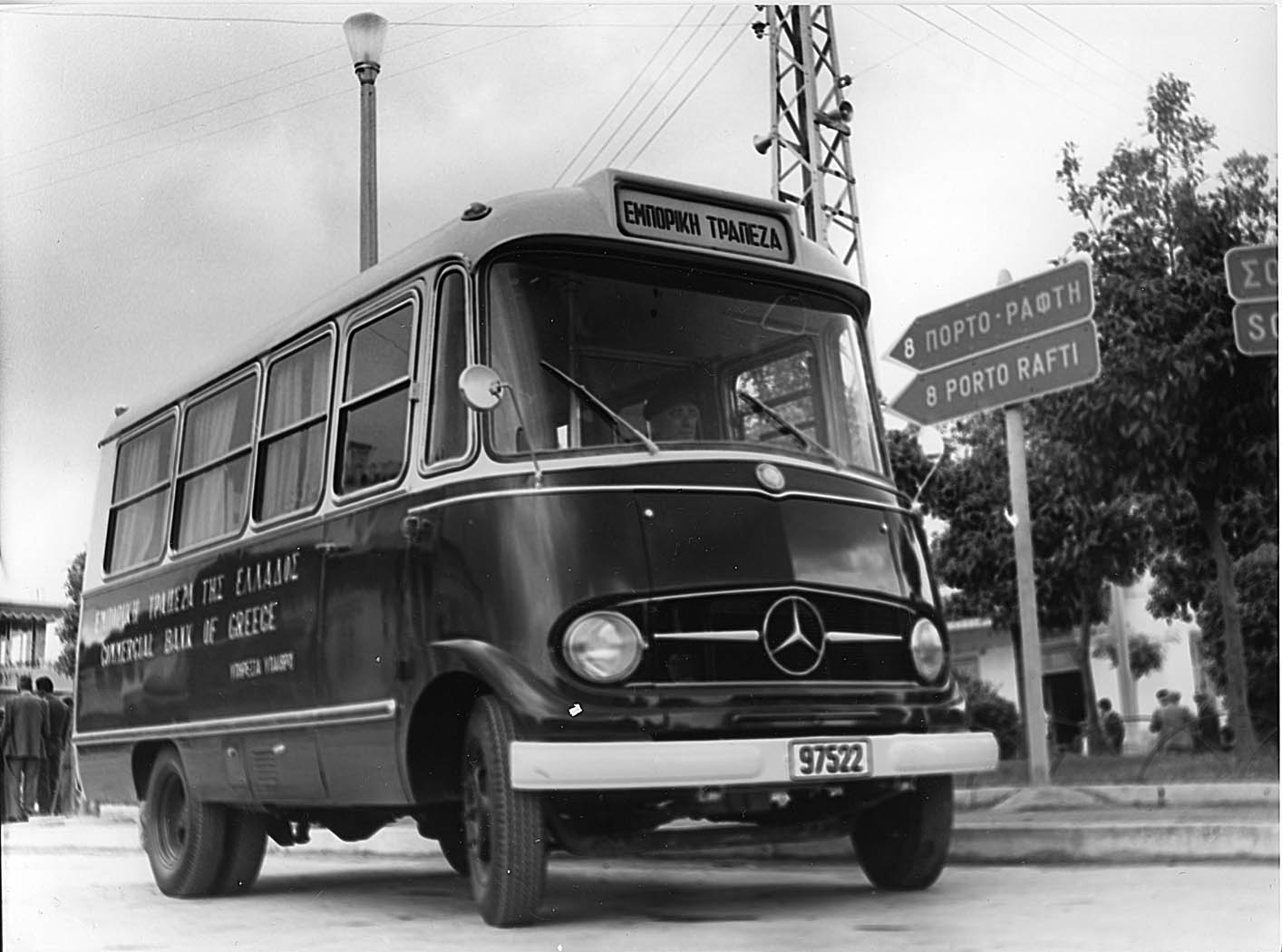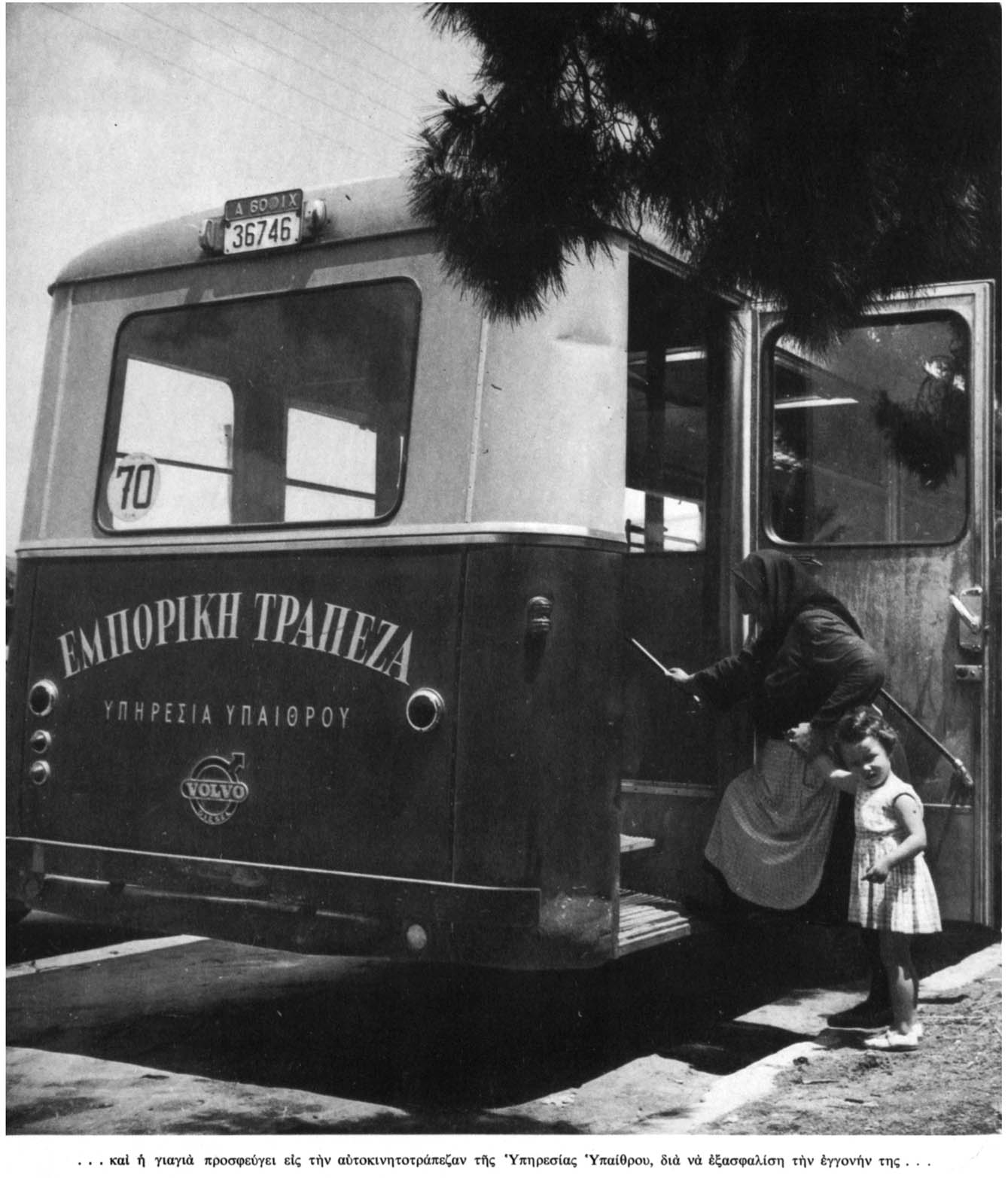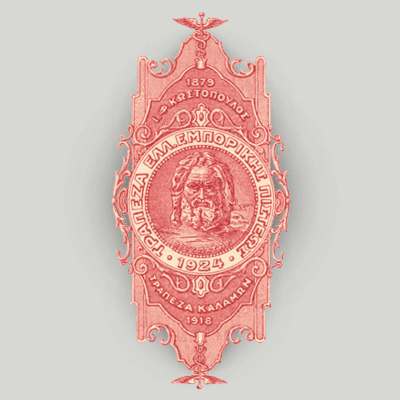Emporiki Bank Rural Service
In 1957 Emporiki Bank launched the Rural Service (also known as banks-on-wheels), an innovative service initially planned to meet the needs of people living in remote areas of Attica. The buses were converted to resemble small bank branches. Emporiki was the first bank in Greece to introduce this groundbreaking service. The bank continued to use this customer service method extensively and well into the 1990s.
Photos of Emporiki Bank’s first bank-on-wheels that started touring Greece in 1957. Banks-on-wheels travelled far and wide to remote towns and villages to meet the banking needs of the rural population.
The side of the bus read “Emporiki Bank of Greece”, while the back read “Emporiki Bank – Rural Service”.
A groundbreaking initiative
Emporiki Bank (Commercial Bank of Greece) was one of the first banks in Europe, and the very first in Greece, to launch a banks-on-wheels service.
On specific days and times, the vehicles would visit areas that were too far from any branch.
Emporiki Bank’s qualified teams and experienced employees did their best to meet the needs of the rural population. The services were provided at no extra charge, so that the rural populations would not feel they received inferior treatment compared to the people of the city.
Purposely-converted vehicles
Banks-on-wheels buses were converted to resemble small bank branches.
On the inside, the vehicle consisted of a customer greeting area and a customer service area with desks and chairs for the employees and the customers. Some of the vehicles had side curtains all around that were the same colour as the Emporiki Bank logo.
Catering for the remote areas in Attica
The Rural Service was launched by Emporiki Bank in 1957. Its initial purpose was to meet the needs of the people living in remote areas of Attica, especially the agricultural population.
Despite any initial doubts, regional branch directors soon came to appreciate the new service. The only inconvenience was that people had to skip their daily tasks to catch the vehicle at the scheduled times.
Extending the service to the rest of the country
More vehicles were soon added to the fleet:
- Smaller vehicles for remote towns and villages in the Peloponnese, Macedonia and the islands of the Eastern Aegean.
- Larger vehicles for Attica.
By 1961, 15 units were already in operation. Even though intended for the rural populations, the units also catered for foreign visitors in areas of tourist interest.
A fast-developing service
It was not long before the Rural Service took off. In 1975 it already had 55 routes offering full banking coverage in more than 580 towns and villages in Greece.
All in all, the Rural Service contributed significantly so that Greece could switch from a bartering economy to a monetary one. It also made it possible for rural populations to build up savings.
This original customer service method was used extensively by Emporiki Bank well into the 1990s.
Emporiki Bank’s collection of photographic material
The item belongs to Emporiki Bank’s collection of photographic material.
The collection offers an overall view of Emporiki Bank’s role in the history of modern Greece and an insight into all the diverse facets of the country’s economic and social life.
Banks-on-wheels in our publications
Emporiki Bank’s banks-on-wheels (1957) are mentioned in Emporiki Bank 1907-2007: Identity Alternations and Corporate Transformations by Margarita Dritsa. Published to mark 100 years of operation, the book examines aspects of Emporiki Bank’s history.
Buy the publication Emporiki Bank 1907-2007: Identity Alternations and Corporate Transformations on the Alpha Bank e-shop.
The Alpha Bank Historical Archives are not open to the public.
Research visits can be organised upon request.
Contact us to request a visit.







